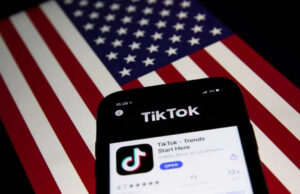Net Neutrality is a freedom everyone deserves
According to the Atlantic, as of 2014 there are over one billion websites on the internet, and trends suggest this number is still growing. There are billions of Google searches a day, and Internet Live Stats reports that there were 1,321,777,390 gigabytes of internet traffic before 7:12 a.m. on Thursday, Nov. 30. By 7:15 a.m. it was 11 million GB more. Then another 14 million GB by 7:20 a.m.
With such a large universe at the fingertips of the common computer or smartphone user, there have been concerns raised about how the internet is regulated and maintained– worries that are beginning to be realized in recent administrative changes in internet policy.
The Federal Communications Commission (FCC) was established in 1934 to regulate all interstate communications, encompassing mediums like radio, television, and now the internet. Under the Obama administration, former FCC chairman Tom Wheeler enacted a net neutrality policy that established internet service providers, also called ISPs and broadband providers, as “common carriers,” providing a utility now considered as crucial as electricity, which forces them to treat all online content equally. This standard of balance created a freer platform where opinions from all sides could share their view, and knowledge was available to anyone who typed into a search engine.
President Trump opposed this policy even before he became president, and now, with Ajit Pai as his new chairman, they are pushing a policy that will tear apart any regulations making the internet equal. No longer will internet service providers be labeled “common carriers.” In the new policy, they will be “information services.”
Without context, these words mean nothing; after all, taking the category name literally, the internet is at its core an information service. Yet, it is the power behind the simple words that should rally Americans across the nation in defense of their right to equal access internet. Big telecommunications companies like AT&T and Verizon would be able to control what information and what companies are presented on the internet, charge money for “high-quality” streaming, and more. With the authority to shape a new internet for whatever companies pay the most, ISPs would effectively block freedom of speech, obstructing any websites they disagree with or whichever ones cannot pay.
Net neutrality is deeply integrated in society. The expectation on the internet is that all websites will load equally as fast, appear in equal standing as relevant to the search item and that the common user will not be charged money to load their content at a reasonable speed. But what Pai and Trump are proposing, in a policy that will likely pass in the December 14 FCC meeting by a Republican party-line vote of 3-2, will allow broadband internet providers the ability to control the speed at which websites load– or if they load at all.
Even internet corporations like Google, Amazon and Facebook are protesting the idea of an unequal internet, fighting against the power-hungry telecom companies and what might become a digital monopoly. If the new bill passes, companies would be able to buy their way into prime internet positions and faster streaming than others, making the internet a capitalist battleground for space, no longer an equal host for all.
Proponents for dismantling net neutrality say that a free market system will allow broadband providers the ability to provide a variety of plans for consumers with different price points. They believe that competition will check these carriers’ powers, and that forcing websites to pay premiums for internet “fast lanes” would reduce the cost of internet service for the consumer. However, according to Forbes, 55 percent of America only has one broadband provider, and 45 percent only has two. This is not a free market atmosphere that will stop internet carriers from abusing their new powers.
The ability to buy better internet positions will put small start-ups at a disadvantage and stifle their progress, as big internet companies strengthen their hold on monopolies and force customers to pay for one-sided internet access. Big business would be able to buy their way into the computers of every internet user, as well as their wallets, making it impossible for small business and start-ups to get off the ground.
The demographic that this will affect the most? Students. Without equal internet, any research they conduct could be heavily censored based on what internet provider they use. The internet would become an unusable resource, because a money-based digital world would be created, where the only information readily available would be from rich companies that can pay. If companies see research and information that they do not agree with, they have the power to make it unavailable to consumers.
Some deny that internet carriers would abuse their power, yet they already have, coincidentally before the net neutrality laws were put into place. In 2012, the Washington Post reported that AT&T was requiring more money from iPhone 5 and 6 users to use the Facetime app, since they were afraid of the competition. Given the track record of most ISPs, an equal internet is not likely to happen unless net neutrality is enforced.
Comcast has pledged that it will still follow net neutrality rules even after they are dismantled. This is a hopeful promise, but why should they be taken down in the first place? The net neutrality laws that keep the internet equal are what police the billions of gigabytes of internet traffic, google searches, tweets and videos, and they cannot be stripped away. Take away net neutrality, and freedom on the internet is taken away too.



